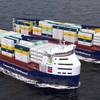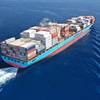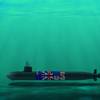APL - the global container shipping line - introduced active RFID technology to its Southern California marine terminal in an important innovation that will speed up cargo container processing.
By introducing Real Time Locating System technology at its Global Gateway South (GGS) terminal, APL can reduce by as much as half a day or more the amount of time it takes to track a container in the yard and prepare it for transport. This not only improves terminal efficiency but, more importantly, helps improve on-time cargo delivery to customers.
"Our customers are looking for new answers to their supply chain challenges," said John Bowe, Regional President of APL's parent company NOL, "and RFID technology offers significant benefits."
The innovation at GGS comes hard on the heels of the launch last week of an RFID test centre in Singapore - an initiative by NOL in partnership with Sun-Microsystems designed to evaluate RFID applications in a 'live' supply-chain environment. It is the first RFID facility of its type in Southeast Asia and provides a full range of packaging and tag testing, compliance and integration services, along with training and entry-level 'tag and ship' solutions for customers.
In Los Angeles, APL is affixing active RFID (Radio Frequency Identification) tags to every chassis in its yard. The tags transmit location signals to computerized tracking equipment. Since nearly every container at the GGS terminal is on a chassis, containers can be quickly spotted and readied for shipment by rail, truck or ship.
The Real Time Locating System is the first-ever use of active RFID technology in a "wheeled" terminal, that is, one that stores containers on chassis instead of stacking them on the ground. The locating system replaces outmoded technology that required drivers with tracking equipment to search up and down rows of containers for a particular unit.
Using the old system, tracking could take as long as half a day or more. With RFID, containers can be spotted almost instantly. "We've gone from 'park it now, find it later,' to 'park it now, find it now,'" said Bowe.
APL's innovative use of RFID marks a milestone in its relationship with the International Longshore and Warehouse Union (ILWU), which supplies labor for GGS and other West Coast marine terminals. It's among the company's most far-reaching uses of technology since a 2002 agreement with the ILWU establishing guidelines for the implementation of waterfront automation.
APL and ILWU officials worked closely on everything from planning to testing and implementation of the Real Time Locating System. "The unique collaboration among APL, the ILWU and our technology partners in developing this technology application illustrates the commitment by all parties to bring the best possible service to the shipping community," said Bowe.
Subscribe for
Maritime Reporter E-News
Maritime Reporter E-News is the maritime industry's largest circulation and most authoritative ENews Service, delivered to your Email five times per week










